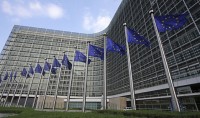The European Union has published a General Purpose AI (GPAI) Code of Practice designed to help companies comply with the AI Act, which includes copyright protections and transparency requirements for advanced models. The Code of Practice bans training models on unauthorized materials and says companies must comply with copyright-holder requests to omit work from datasets. Developers are required to provide documentation describing the features of their AI models. The AI Act began taking effect in August 2024 and is being implemented gradually, with key transparency, governance and privacy provisions coming into force next month.
Divided into three sections — copyright, transparency and public safety — the Code of Practice “represents some of the first concrete details” as to how European Union regulators plan to enforce the AI Act, reports The New York Times, adding that “rules for general-purpose AI systems take effect on August 2, though EU regulators will not be able to impose penalties for noncompliance until August 2026.”

The Code now goes to the EU states and the Commission for endorsement, with complementary Commission guidelines related to general-purpose AI models due to be published later this month.
After it is endorsed, AI model providers will be asked to voluntarily sign it to show they intend to comply with the AI Act by adhering to the Code, the European Commission said in an announcement.
Originally scheduled for publication in May, the Code of Practice “has been controversial and triggered a backlash from some technology companies, including Meta Platforms and Alphabet,” according to Bloomberg, noting those companies “complained that earlier drafts went beyond the bounds of the AI Act and created a new set of onerous rules.”
European companies including semiconductor parts supplier ASML, Airbus and Mistral AI have asked the Commission to suspend implementation of the AI Act’s implementation for two years in an open letter this month calling for a more “innovation-friendly regulatory approach.” So far the Commission has resisted postponement requests.
“The Commission will only start directly overseeing the AI Act’s application in August 2026,” reports Bloomberg, pointing out that until then enforcement will be left to the national courts, and their varying degrees of technical expertise. The Commission makes the case that “signing the Code of Practice will give companies increased legal certainty,” writes Bloomberg.
Related:
Everything Tech Giants Will Hate About the EU’s New AI Rules, Ars Technica, 7/10/25
EU Tries to Explain How to Do AI Without Breaking the Law, The Register, 7/10/25
EU’s Final GPAI Code Imposes Disproportionate Burden, Improvements Required, CCIA, 7/10/25
CDT Europe’s Reaction to the Final Code of Practice on General-Purpose AI Draft, CDT, 7/11/25

No Comments Yet
You can be the first to comment!
Leave a comment
You must be logged in to post a comment.